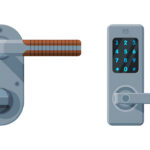Choosing the right early learning program is a significant decision for parents. A quality program lays the foundation for your child’s emotional, cognitive, and social development. With so many options available, knowing what to prioritize can feel overwhelming. This guide will walk you through the essential factors to consider when selecting an early learning program for your child.
Understanding Early Learning Programs
Early learning programs go beyond basic childcare. These programs aim to nurture your child’s development through structured activities tailored to their age and needs. They prepare children for future academic success while fostering critical skills like problem-solving, communication, and teamwork.
Programs can range from traditional preschools to innovative educational approaches such as Montessori, play-based, or STEM-focused. Understanding these options is the first step to finding the one that aligns with your child’s needs.
Factors to Consider When Choosing a Program
Curriculum and Teaching Philosophy
Take time to understand the curriculum and teaching philosophy of the program. Does it focus on academic preparation or holistic development? Some programs emphasize structured learning, while others prioritize creative exploration. Consider what balance suits your child best. A well-rounded program should integrate academic learning with play, simultaneously fostering cognitive and social growth.
Learning Environment
The learning environment plays a crucial role in your child’s experience. Look for a space that is clean, safe, and inviting. Classrooms should be age-appropriate and designed to encourage exploration and independence. Additionally, notice whether the program provides a mix of indoor and outdoor activities to promote physical activity alongside mental engagement.
Teacher Qualifications
A qualified and experienced teaching staff is key to a high-quality learning program. Teachers should have proper certifications and training in early childhood education. Observe how they interact with children. Compassionate, caring, and attentive educators can significantly impact your child’s development.
Class Size and Teacher-Child Ratio
Smaller class sizes and low teacher-to-child ratios ensure your child receives personalized attention. This is especially critical during the formative years, as children benefit from close interactions and guidance. Before enrolling your child, confirm that the class size and ratios meet the recommended standards.
Program Schedule and Flexibility
Early learning programs differ in terms of hours and flexibility. Some offer full-time schedules, while others cater to families seeking part-time arrangements. Determine what works best for your family’s routine. Flexibility can be especially helpful for working parents or those balancing multiple responsibilities.
Exploring Financial Assistance Options
Affording a quality early learning program can be a challenge for many families. Fortunately, there are options to make early education more accessible. Programs like CCAP daycare in Aurora provide financial assistance to eligible families. Research local resources to understand what support might be available in your area.
Social and Emotional Aspects of Early Learning
Early learning programs do more than prepare children academically. They also nurture social and emotional development. Children learn to build relationships, collaborate with peers, and express their feelings constructively. Look for programs that incorporate these elements into their daily schedules.
A good program will also address children’s emotional well-being by creating a positive and inclusive environment. Facilitating activities that build self-confidence and resilience is equally important.
Taking a Tour and Asking Questions
Visiting potential programs can provide invaluable insight. During your visit, observe the classroom setup, the children’s engagement levels, and how teachers interact with the group. Don’t hesitate to ask questions. Clarify any concerns about the program’s policies, teaching methods, or health and safety measures.
Some key questions to ask include:
- How does the program handle conflict resolution and discipline?
- What safety measures are in place?
- How do teachers address individual learning styles?
- Is there a clear system for tracking a child’s progress?
Trusting Your Instincts
After researching, visiting, and asking questions, trust your instincts. You know your child better than anyone. It is likely a good choice if a program feels like the right fit and aligns with your priorities.
Conclusion
Selecting the ideal early learning program is a thoughtful process. From evaluating the curriculum to considering financial options, each factor plays an important role in your decision. Take the time to ensure the program you choose supports your child’s growth and sets a strong foundation for their future.
A well-designed learning environment also supports social development by offering spaces for both group interaction and individual play. According to St George Montessori, materials should be accessible and varied, encouraging creativity, problem-solving, and hands-on discovery. The atmosphere should feel welcoming, helping children feel secure and confident as they learn and grow. -under “Learning Environment”, add as the 2nd para



